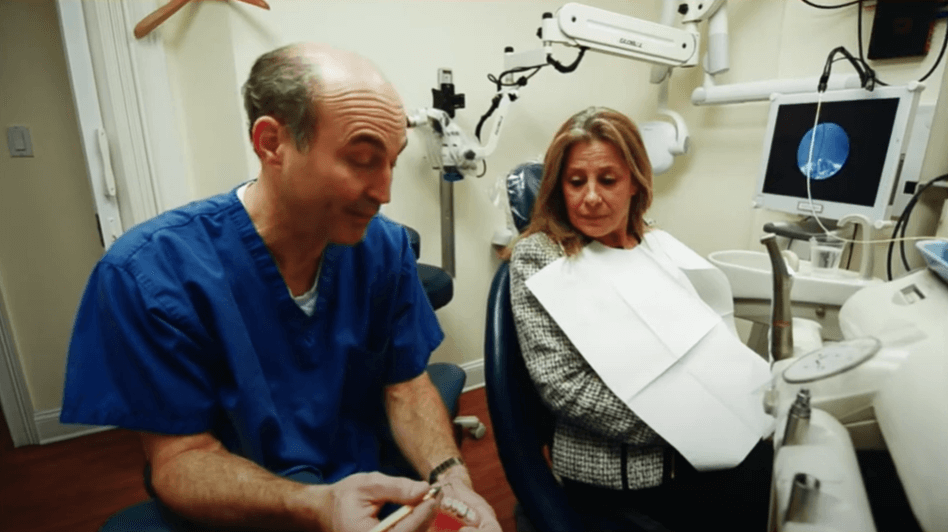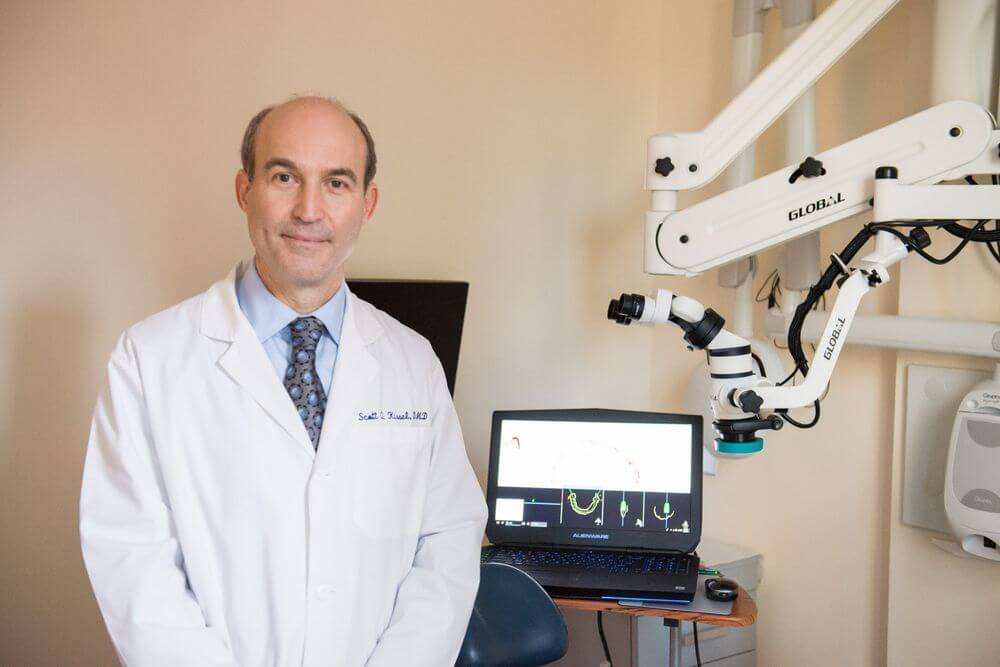Multi-tooth extraction requires a skilled and experienced dentist or oral surgeon to perform the procedure safely and gently. Dr. Scott Kissel in Midtown Manhattan prioritizes safety and comfort for every multi-tooth extraction we perform. Using dental microsurgery for multi-tooth extractions, we help patients improve their oral health while minimizing trauma and healing time.
To schedule an appointment at NYC Periodontics and Implant Dentistry, contact our office by calling us today at 212-702-9088.

There are several reasons why a dentist may recommend having multiple teeth extracted. Some of the most common include:
A multiple-tooth extraction process typically begins with a thorough examination and consultation with our dentist or an oral surgeon. X-rays may be taken to determine the position of the teeth and their roots, as well as any potential complications that may arise during the procedure.
On the extraction day, the patient will receive a local anesthetic to numb the area around the teeth. In some cases, dental sedation may also help the patient relax and feel more comfortable during the procedure.
Using specialized microscopes, our dentist or oral surgeon will magnify the treatment areas. We’ll then use dental microsurgical tools to remove the teeth. After removing any remaining debris or tissue, we’ll pack the surgical sites with gauze to control bleeding.
After the procedure, the patient will receive detailed instructions for post-operative care, including managing any discomfort, swelling, or bleeding and maintaining good oral hygiene to promote healing.
Although traditional multi-tooth extraction can be a significant procedure, dental microsurgery allows most patients to recover fully within a few days. Follow all post-extraction instructions, such as eating soft foods, to ensure a safe and successful recovery period.
As with any surgical procedure, there are risks and potential complications associated with multi-tooth extraction. Some of the possible risks and complications include:

No one wants to live with missing teeth. After your multiple tooth extraction procedure, you can discuss replacement options. Depending on your preferences and oral health condition, Dr. Kissel may recommend dental implants. Dental implants are permanent tooth replacement that restores full function to your smile.
Contact our dentist today at 212-702-9088 to schedule an appointment and discuss tooth replacement options.
The length of the removal procedure will depend on the number and location of the teeth being extracted. However, most multi-tooth extractions take between 30 minutes to an hour.
Patients will be given an anesthetic or dental sedation during the procedure, so they should not feel any pain. However, some discomfort and swelling are normal after the procedure.
Generally, it takes a few days to a week for the swelling to go down and for the extraction sites to heal. However, the gums and jawbone can take several weeks or even months to fully heal. Recovery time will vary depending on the extent of the procedure and the individual patient’s healing process.
Yes, you can eat after the procedure, but it’s recommended that you stick to soft foods for the first few days. As the extraction sites heal, you can gradually reintroduce harder foods.
Sometimes, getting multiple teeth extracted is the best for your oral health. If you’re having tooth pain, contact our NYC dentist today to schedule your consultation. We’ll evaluate your source of pain and recommend the best course of treatment. Call today at 212-702-9088.
Quick Links
Open Hours
Monday to Friday
8:30am – 5pm